According to the Vietnam E-commerce Association (VECOM), the indexes of human resources, technology infrastructure, B2C, B2B transactions and local e-commerce index of Hanoi all increased sharply compared to the previous year, demonstrating a comprehensive breakthrough.
Improve competitiveness and reach out to international markets
According to the Hanoi Department of Industry and Trade, there are currently more than 17,600 licensed e-commerce websites and applications in the area, with online retail sales accounting for 13% of total retail sales. The proportion of people shopping online is nearly 55% and is increasing, reflecting a clear shift from traditional commerce to digital commerce.
Deputy Director of the Hanoi Department of Industry and Trade Nguyen The Hiep said that most businesses in the area have applied e-commerce in their business activities. E-commerce is becoming an indispensable part of businesses in the capital. The application of digital technology shows that businesses have quickly caught up with world trends, helping to improve competitiveness and reach out to international markets.

Along with that, the logistics system - the "backbone" of e-commerce - has also developed strongly. In Hanoi, there are currently many large transportation and logistics enterprises operating, along with a network of warehouses and transit points equipped with modern technology such as Viettel Post, VNPost, Goldtrans, T&M Forwarding, J&T Express... Thanks to that, delivery time is shortened, transportation costs are significantly reduced.
Mr. Tran Duc Nghia, Chairman of the Hanoi Logistics Association, said that logistics activities in Hanoi will continue to have many supports in the coming time. Notably, the State's new policies on developing transport infrastructure will have a positive, long-term impact on logistics activities in Hanoi.
"In particular, the Ring Road 4 - Capital Region project, when completed in 2027, will be a lever, connecting logistics infrastructure, facilitating the trade of goods and developing e-commerce," Mr. Tran Duc Nghia analyzed.
Synchronously deploy solutions
To promote e-commerce development more strongly, Hanoi has implemented many synchronous solutions. The Department of Industry and Trade has strengthened coordination with other sectors, effectively implementing the "Regulations on coordination in management and development of e-commerce in Hanoi". The work of improving management capacity for staff and enterprises is focused on through specialized training courses, suitable for the characteristics of each target group.
In addition, the Department also organizes many annual events to promote and boost the development of e-commerce; at the same time, it supports businesses to access major e-commerce platforms in the world such as Amazon and Alibaba to expand the product consumption market.
However, Hanoi's e-commerce market is still facing many challenges. Mr. Nguyen The Hiep said that currently, human resources for e-commerce in enterprises are limited, e-commerce application skills are weak, content and knowledge about e-commerce are only basic, there is no in-depth application. Enterprises are not fully aware of the effectiveness of e-commerce, so e-commerce application lacks continuity.
Besides, the legal corridor is still inadequate, while the situation of counterfeit goods on the internet is complicated, significantly affecting legitimate businesses.
"The e-commerce sector is unique, combining technology and market, real and virtual elements, physical entities and digital space entities, so the legal framework still has gaps that need to be completed, especially consumer protection policies," said Mr. Nguyen The Hiep.
To overcome this, Hanoi has identified three pillars for e-commerce development, including digital infrastructure, digital human resources, and digital trust. Regarding digital infrastructure, the city is investing in building data centers, expanding warehouses in Dong Anh, Gia Lam, and Soc Son, and developing a 5G network to cover suburban areas. Regarding digital human resources, the Department of Industry and Trade, in coordination with universities and e-commerce platforms, continues to deploy specialized training courses on store management, online marketing, customer data analysis, etc., suitable to the characteristics of each region and area.
In particular, consumer protection and digital market control are identified as key priorities, creating "digital trust". The city will perfect the mechanism for monitoring online goods, strictly handle fraudulent acts and trading in poor quality goods, and at the same time build a system to receive feedback and resolve e-commerce complaints transparently and quickly.
One of the breakthrough solutions is the model "Digital booth - Enhancing the Capital's merchants" according to Plan No. 256/KH-UBND dated September 23, 2025. Hanoi will build a "Capital product booth" on Shopee platform, to promote and consume OCOP products, strong and typical goods of Hanoi.
The goal this year is to bring 60% of OCOP products (except fresh produce) to this booth, while ensuring that 100% of participating establishments apply electronic invoices, contracts and traceability, creating a transparent and modern business environment. In the period of 2026 - 2030, Hanoi aims for 100% of OCOP products and 50% of production and business establishments to participate in the "Digital Booth" platform, while expanding to other e-commerce platforms and cross-border markets.
It can be seen that, not only is it a sales channel, "Digital Booth" is also a digital skills training platform, helping businesses and craft villages adapt to global trade trends. With modern technology infrastructure, synchronous policies and a strong spirit of innovation, Hanoi is gradually forming a comprehensive e-commerce ecosystem.
Source: https://daibieunhandan.vn/ha-noi-tung-buoc-hinh-thanh-he-sinh-thai-thuong-mai-dien-tu-toan-dien-10393291.html


![[Photo] Draft documents of the 14th Party Congress reach people at the Commune Cultural Post Offices](https://vphoto.vietnam.vn/thumb/1200x675/vietnam/resource/IMAGE/2025/10/28/1761642182616_du-thao-tai-tinh-hung-yen-4070-5235-jpg.webp)
![[Photo] National Assembly Chairman Tran Thanh Man received a delegation of the Social Democratic Party of Germany](https://vphoto.vietnam.vn/thumb/1200x675/vietnam/resource/IMAGE/2025/10/28/1761652150406_ndo_br_cover-3345-jpg.webp)

![[Photo] Flooding on the right side of the gate, entrance to Hue Citadel](https://vphoto.vietnam.vn/thumb/1200x675/vietnam/resource/IMAGE/2025/10/28/1761660788143_ndo_br_gen-h-z7165069467254-74c71c36d0cb396744b678cec80552f0-2-jpg.webp)


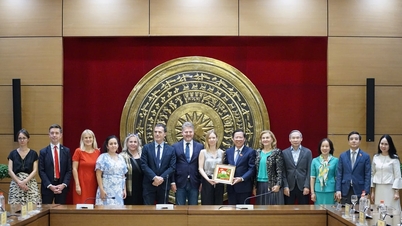
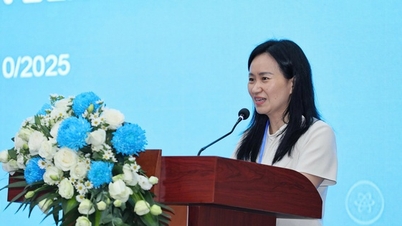
























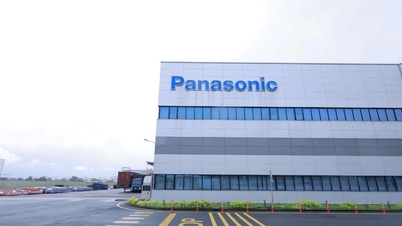



![[Photo] President Luong Cuong attends the 80th Anniversary of the Traditional Day of the Armed Forces of Military Region 3](https://vphoto.vietnam.vn/thumb/1200x675/vietnam/resource/IMAGE/2025/10/28/1761635584312_ndo_br_1-jpg.webp)














































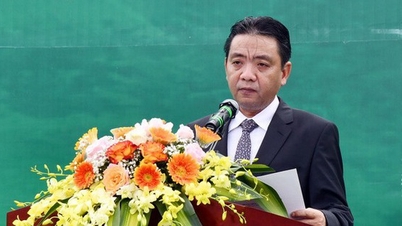
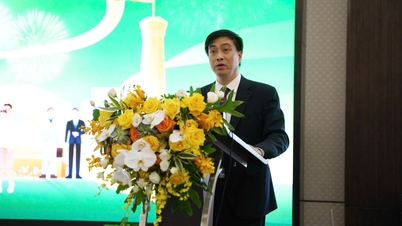







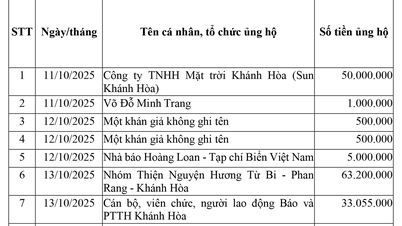

















Comment (0)